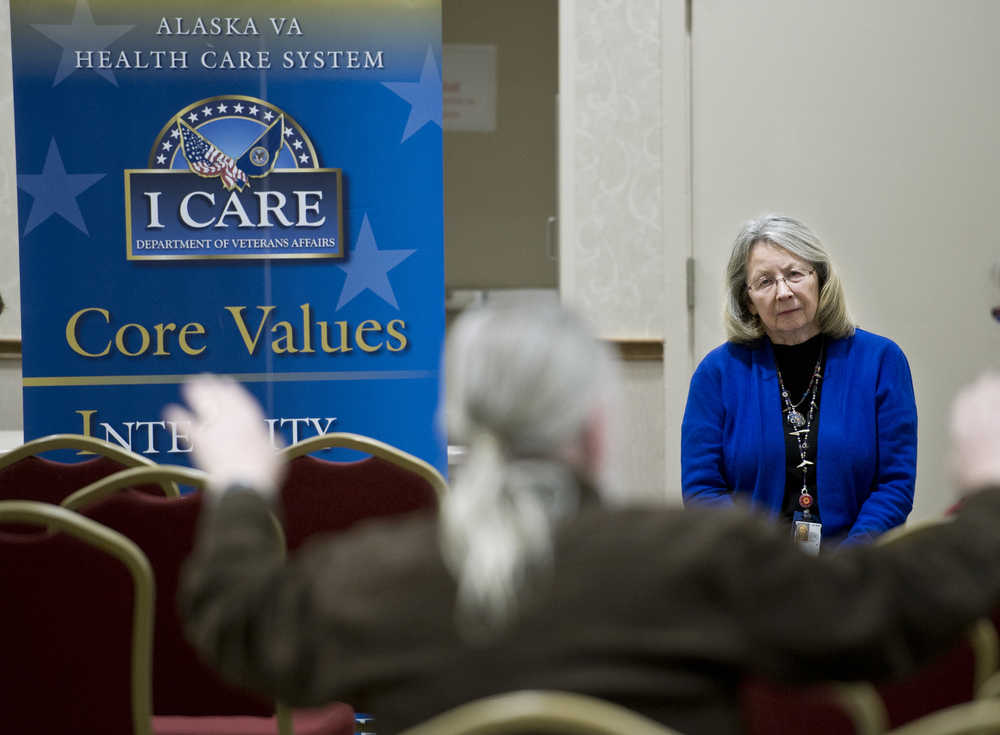What the audience at Monday night’s Veterans Affairs town hall lacked in numbers, it made up for in volume.
Only nine people (and not all were veterans) attended the event in Elizabeth Peratrovich Hall, which was billed as a chance to discuss problems and seek solutions from the federal agency that handles benefits for military retirees. Most, however, took full advantage of the opportunity to talk about their problems.
“This is insane,” James Helfinstine said, describing how the VA failed to transfer records he needed to make a medical appointment.
When he flew down into Seattle for a specialty appointment, he arrived and found that the doctor didn’t have the results of previous medical tests. Without those results, Helfinstine couldn’t get his scheduled treatment.
“Basically, all this money got wasted, including my time and the VA’s time,” he said. “There should be somebody who’s keeping all the records together.”
Helfinstine said he’s learned to keep his records on a CD and carry them with him, but he worries about other veterans who don’t know how to navigate the system.
Kevin Hassin offered comments that seemed to support Helfinstine’s story. “The treatment we are getting at the outlying clinics — in my case, Juneau — those are working excellent,” he said. “Where the failure is, is once you get beyond that.”
Barbara Bachmeier said the Alaska VA desperately needs to improve its medical care for women. She urged VA administrators to hire a doctor in Anchorage and devote her to women’s health problems.
Listening to that request at the front of the room was Linda Boyle, the interim director of the Alaska VA system. She said the VA is hiring a nurse practitioner to deal with women’s health issues in Anchorage.
Boyle, who served 25 years in the Air Force, said things aren’t working perfectly, but “they’re absolutely working on it.”
An Alaska Native woman, who declined to give her name, said she was at the meeting to find out how to get veterans benefits for friends and family who need them.
She described one man in danger of losing his home because he couldn’t afford the taxes; she asked about a tax exemption given to veterans.
About another man, a medic who served in Afghanistan and Iraq, she said she believes he suffers from Post-Traumatic Stress Disorder but won’t get treatment. She asked what could be done to help him.
As she was getting answers to those questions, Samuel Hudson, a spokesman for the Alaska VA system, said listening sessions like Monday’s are held quarterly exactly for people like the woman.
They’re open to veterans and others who can “tell us the problems so we can fix them,” he said. “That’s what this is for. Let’s identify them and hear about them.”

